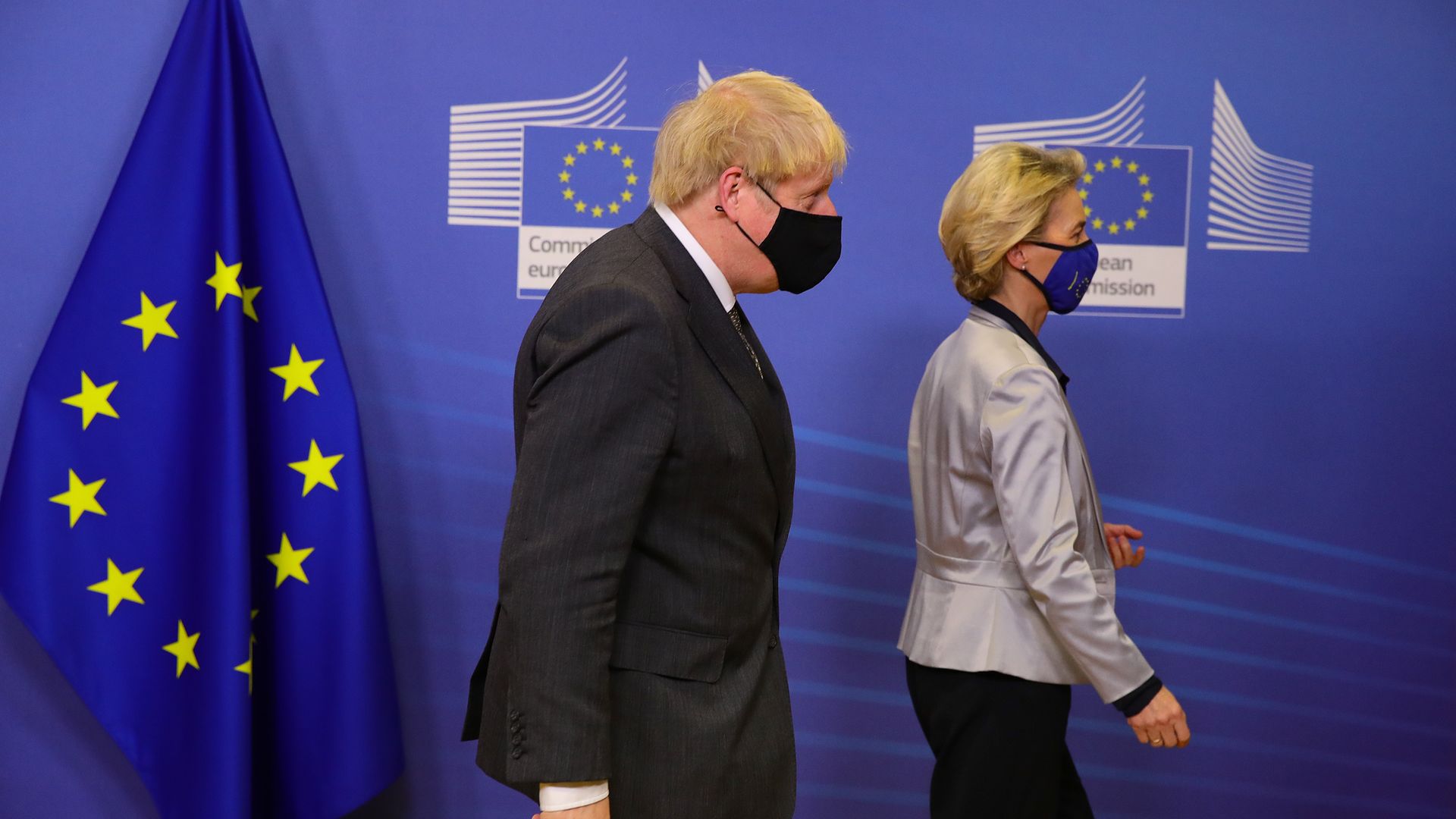
The UK and the EU have clashed over the status the trading bloc’s ambassador in London should have.
The UK government is refusing to grant Joao Vale de Almeida full diplomatic status offered to other ambassadors.
The Foreign and Commonwealth Office is insisting he and his officials should not have privileges and immunities afforded to other diplomats under the Vienna Convention because the EU is not an official country.
This means de Almeida will not be able to present his credentials to the Queen.
Britain’s decision puts it out of step with 142 other countries which have granted diplomatic immunity to EU delegations.
Josep Borrell, the EU’s High Representative for Foreign Affairs, has written to the foreign secretary Dominic Raab, to express his “serious concerns”.
In his letter to Raab last November, seen by the BBC, Borrell says: “Your service have sent us a draft proposal for an establishment agreement about which we have serious concerns.
“The arrangements offered do not reflect the specific character of the EU, nor do they respond to the future relationship between the EU and the UK as an important third country.
“It would not grant the customary privileges and immunities for the delegation and its staff. The proposals do not constitute a reasonable basis for reaching an agreement.”
The EU argues it is not a typical international organisation – which Britain is seeking to recognise it as – because it had its own currency, judicial system, and power to make law.
EU officials private accuse the Foreign Office of hypocrisy because when the EU’s foreign service – known as the External Action Service – was set up in 2010 as a result of the Lisbon Treaty, the UK signed up to proposals that EU diplomats be granted the “privileges and immunities equivalent to those referred to in the Vienna Convention on Diplomatic Relations of 18 April 1961”.
Others have branded the move as “petty”. One EU source told the BBC: “It seems petty. This is not about privileges, it’s about principle. What does it say about the UK, about how much the British signature is worth?”
A European Commission spokesman said: “The UK, as a signatory to the Lisbon Treaty, is well aware of the EU’s status in external relations, and was cognisant and supportive of this status while it was a member of the EU.
“The EU has 143 delegations, equivalent to diplomatic missions, around the world. Without exception, all host states have accepted to grant these delegations and their staff a status equivalent to that of diplomatic missions of states under the Vienna Convention on Diplomatic Relations, and the UK is well aware of this fact.”
He added: “Nothing has changed since the UK’s exit from the European Union to justify any change in stance on the UK’s part.
“The EU’s status in external relations and its subsequent diplomatic status is amply recognised by countries and international organisations around the world, and we expect the United Kingdom to treat the EU Delegation accordingly and without delay.”
A Foreign Office spokesperson said: “Engagement continues with the EU on the long-term arrangements for the EU delegation to the UK. While discussions are still ongoing, it would not be appropriate for us to speculate on the detail of an eventual agreement.”
Warning: Illegal string offset 'link_id' in /mnt/storage/stage/www/wp-includes/bookmark.php on line 357
Notice: Trying to get property 'link_id' of non-object in /mnt/storage/stage/www/wp-includes/bookmark.php on line 37






